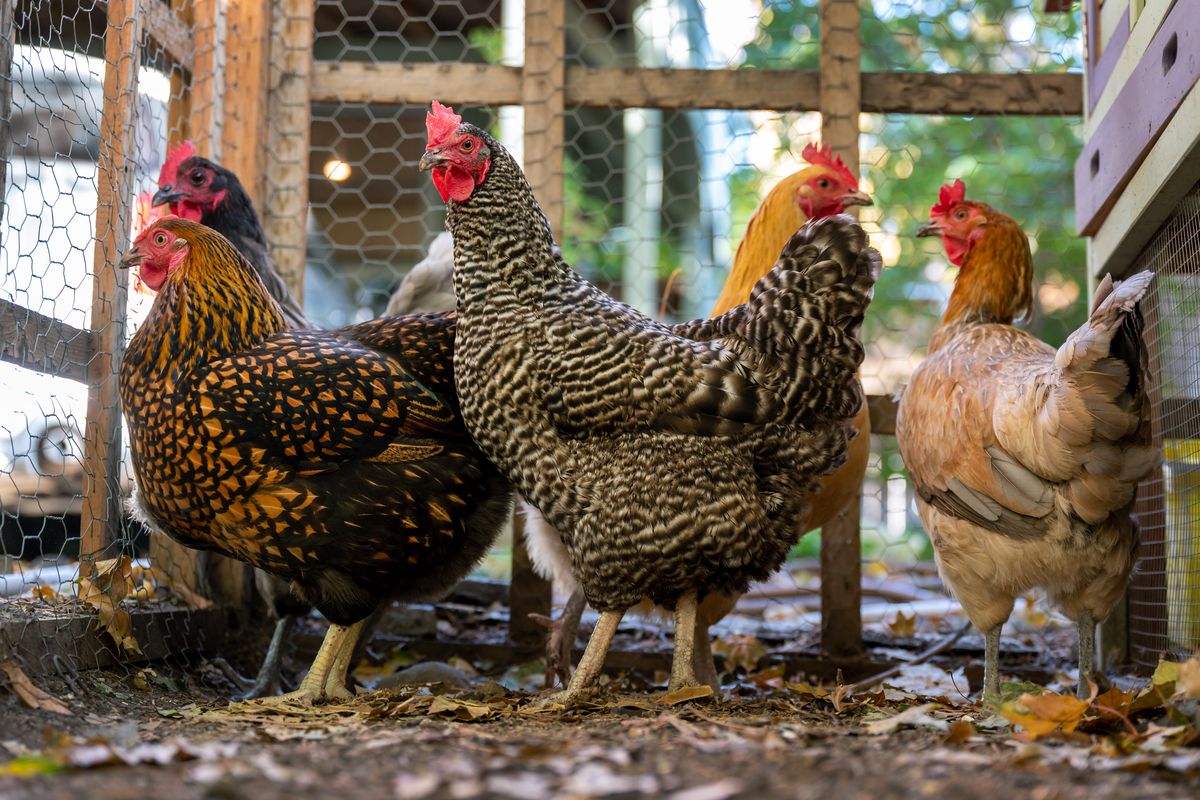Game of chicken: Spokane County considers allowing hens in suburban settings

Unless they chicken out, the Spokane County Commissioners will soon approve a code change allowing residents in low-density residential areas to raise hens.
County building and planning officials on Tuesday presented a proposal for new chicken rules that will appear before the commissioners on Nov. 30.
“I think it just makes sense,” Commissioner Josh Kerns said of giving more residents the right to have chickens. “I don’t know why we didn’t allow this already.”
Tens of thousands of Spokane County residents can raise chickens legally today.
Virtually anyone living in the county’s rural areas can raise chickens. Several incorporated cities within the county, including Spokane, Spokane Valley and Airway Heights, have codes allowing for hens in urban areas, albeit with caveats.
But residents in parts of suburban, unincorporated Spokane County don’t currently have the same chicken-raising freedoms – though there are undoubtedly some who have illegal chickens.
The chicken code amendment wouldn’t affect everyone living in unincorporated Spokane County. People in medium- or high-density residential zones still couldn’t have chickens. But residents in low-density residential zones could have one hen per 1,000 square feet of lot area.
“It is very important to stress this is not roosters,” Kerns said.
Pens, hutches and enclosures would have to be at least 25 feet from dwellings on adjacent properties.
Spokane County’s low-density residential zones are mainly on the outskirts of Spokane, Spokane Valley and Airway Heights. The largest chunks of low-density residential housing are outside the city limits of north-central and northeastern Spokane. Low-density residential zones include single-family and duplex housing.
Kerns said he brought up the idea of changing the county code after a resident reached out to him. He said the resident was surprised it was illegal, per county code, to have chickens.
“I said, ‘OK, I’ll look into it,’” Kerns said. “And here we are today.”
Pat Munts, the Washington State University Spokane County Extension small farms and urban agriculture coordinator, said she helped the county draft the proposed chicken code changes. She said there are a handful of benefits to raising chickens.
First off, having hens means fresh eggs, Munts said. Second, raising chickens is a great family activity and project. Kids and adults love watching chickens, Munts said. Some people like to sit in their backyards with a glass of wine and watch their chickens walk about eating insects.
In addition to laying delicious eggs and providing entertainment, Munts said chickens can also be a great teaching tool for kids.
Learning how to water and feed the animals every day, and remembering to lock the chicken coop so predators can’t get in, teaches kids about responsibility, Munts said.
Chickens can also bring you closer to the families who live next door, Munts said. You might have to share your hens’ eggs.
“When you start getting too many eggs, then you make friends with your neighbors,” she said. “It kind of builds community, as long as you don’t have a rooster.”
Chickens, if properly cared for, aren’t going to bother the neighbors, Munts said.
Because the county wouldn’t allow roosters in suburban areas, there’s no risk of cock-a-doodle-doos waking up anyone in the morning. Hens don’t squawk very loudly. Chickens aren’t likely to fly away or smell either, Munts said.
There are also some biological benefits, because chickens can eat vegetable scraps and create manure for gardens.
If the county decides to allow chickens in low-density residential zones, they’ll initially try out the change as part of a pilot program for a couple of years.
Kerns asked why a pilot program was necessary, since the change likely will be popular and uncontroversial. Plus, he noted, how would people get rid of their chickens if the county rescinded the amendment change?
“You have a barbecue, Josh,” Spokane County Commissioner Al French said, drawing chuckles from the Zoom audience.